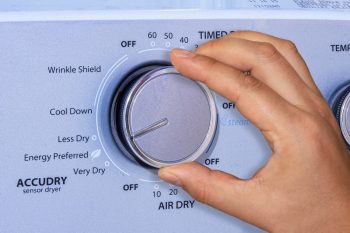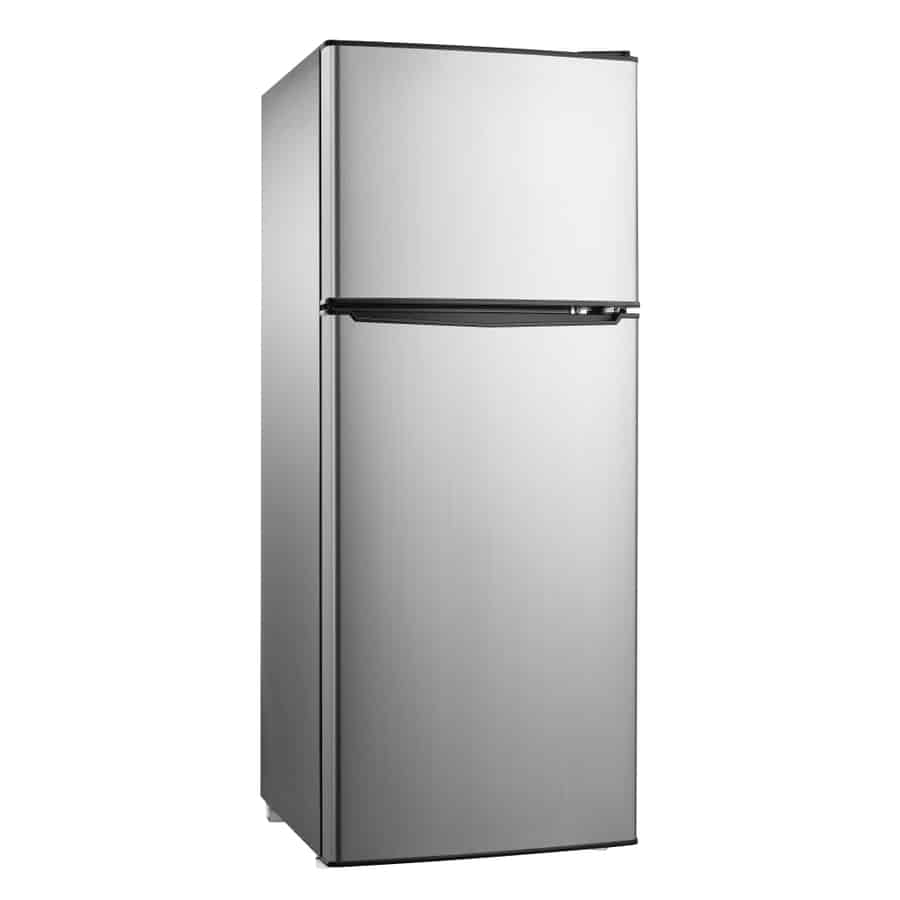
Let’s face it — refrigerators can be bulky. If you have limited space in your kitchen, having that large, clunky appliance eating up your floor can tighten your space.
For this reason, some people have tried to find alternative areas to keep their fridges in. Some have thought of keeping their refrigerator outside, but is that advisable?
Find out about proper refrigerator storage and whether your fridge can weather the great outdoors with this short guide.
- Refrigerators come in three types — indoor, outdoor, and indoor/outdoor.
- Standard indoor refrigerators are not designed for external use or storage.
- Keeping an indoor fridge outside could cause corrosion and performance problems and could void your warranty.
- You may safely keep a fridge outdoors by following certain guidelines.
- It’s still recommended to purchase an outdoor refrigerator if you need one outside your home.
We often think of refrigerators as durable, long-lasting appliances because of how well they withstand the test of time. But just because it lasts longer doesn’t mean it can survive harsh outdoor conditions. So, consider these factors before you find a place outside for your fridge.
Is It Safe To Keep a Refrigerator Outside?
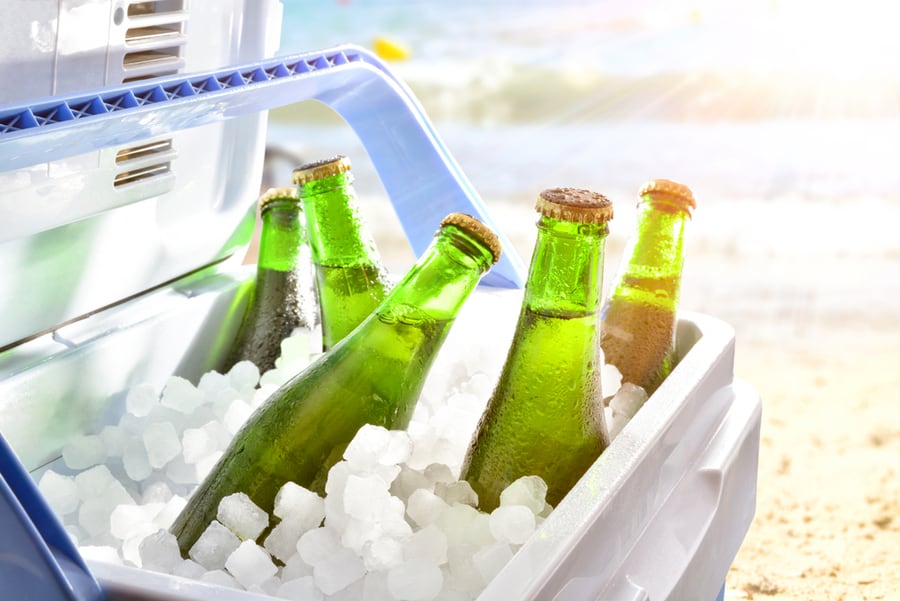
Likely, the refrigerator you use in your kitchen isn’t the kind you can place outdoors. That’s because refrigerators can come as indoor, outdoor, or indoor/outdoor models.
The Indoor models are intended solely for use inside your home, ideally in the kitchen. Outdoor and indoor/outdoor models can work outside but within controlled parameters.
There are some solid reasons why you shouldn’t place a standard indoor fridge outside. These include:
- Material and build – Even when they’re solely used indoors, these refrigerators can undergo corrosion because of constant exposure to moisture. That’s why you’ll often find that dated, old refrigerators have rusted parts even when they’ve never seen outdoor use. Constant exposure to rain and heat can speed up the corrosion process and rust the edges of your fridge much sooner.
- Performance – Indoor refrigerators aren’t designed to perform in extreme conditions. When overwhelmed with ambient heat or cold, an indoor refrigerator could fail to regulate internal temperatures and eventually break down.
- Warranty – You’ll know that you can’t store a fridge outdoors if you check its warranty. The manufacturer will only honor the warranty if you do your part in maintaining and taking care of your fridge. Keeping it outdoors will likely void your warranty, forfeiting whatever services, repairs, or replacements you could have been entitled to have you kept your fridge in proper condition.
Can You Store a Refrigerator Outdoors When It’s Turned Off?
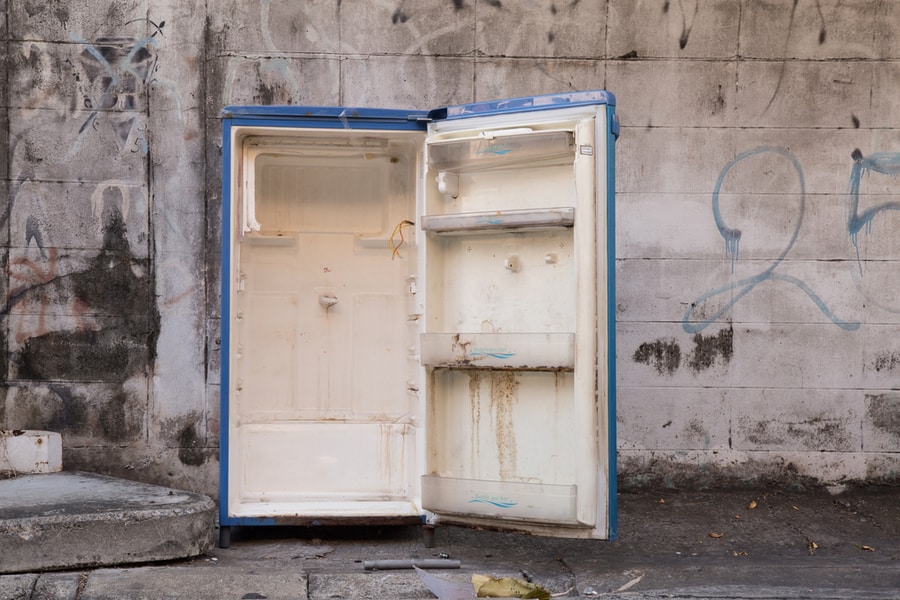
Maybe you’ve got a fridge you don’t think you’ll need for a while, and you’re trying to find a place to store it while it’s not in use. The principles listed above apply if it’s an indoor fridge.
This means you probably won’t be able to store your fridge outdoors unless you ensure it’s as protected as possible while outdoors.
How To Safely Keep a Fridge Outdoors
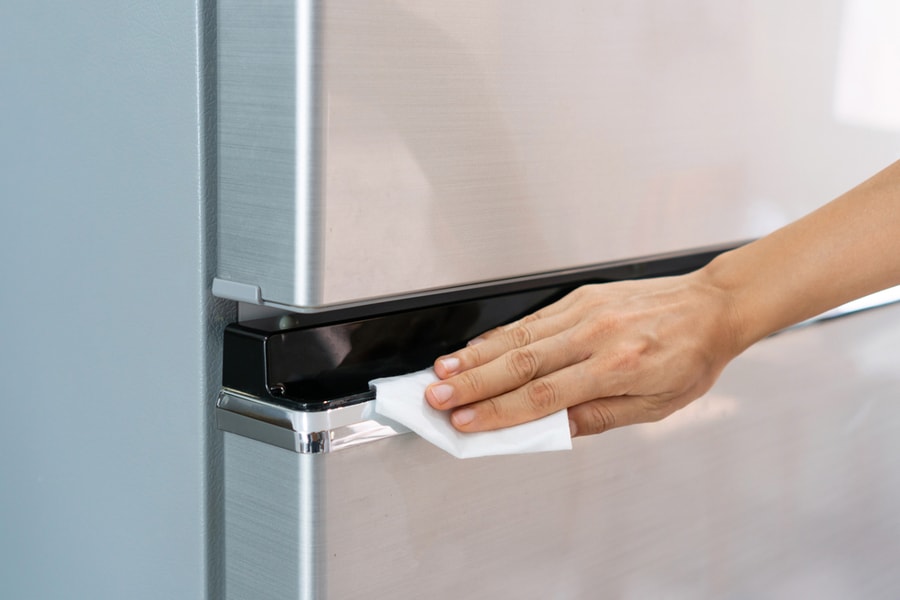
If push comes to shove and you have no other options, you can keep your fridge outdoors without causing it damage.
Here are some tips you can try to keep your refrigerator in good condition even while it’s outdoors:
- Shield the unit from sun, snow, and rain. A spot with sufficient shade can prevent significant damage.
- Visit your fridge regularly to clean it. Wipe away debris, dirt, moisture, and other contaminants that could cause damage in the long run.
- Keep it covered. If you’re storing your refrigerator outdoors while it’s turned off, you might consider using its original box to conceal the unit. This keeps pests and insects from taking up residence underneath and inside your fridge.
- Move it indoors as soon as you can. Find a place indoors to keep your fridge. Even your garage or basement makes a better alternative than just outdoors.
- Buy an outdoor fridge if you need a refrigerator outside of your house.
It is not recommended that you keep an indoor fridge outdoors whether or not it’s plugged in and turned on. If having a fridge outdoors is essential for your household, consider buying an outdoor model.
Takeaway
Standard refrigerators aren’t designed to withstand the elements. Keeping an indoor fridge outdoors could void your warranty, cause damage, and impair performance.
While you can keep your refrigerator outdoors by following certain steps, purchasing a dedicated outdoor fridge is ideal if you find having one outside your house necessary.
Frequently Asked Questions
What Type of Refrigerator Can Be Used Outside?
Most outdoor refrigerators use durable 304 stainless steel to protect them against the elements. They also use stronger, adaptive motors that let the fridge cope with changing temperatures outdoors.
Nevertheless, these refrigerators should never be left exposed to the elements.
Manufacturers still urge users to keep their outdoor fridges relatively protected in the shade or away from direct sunlight, rain, and snow.
Is a Fridge Affected by Ambient Temperature?
Yes. When the air around the fridge is hot, you can bet your refrigerator will work double-time to keep internal conditions cool.
While it is designed with lots of insulation to prevent internal-external heat exchange, excessive outdoor heat can affect its performance.
If you’re using an outdoor refrigerator, it’s recommended that you build it as a sort of shelter to keep it from direct heat.

